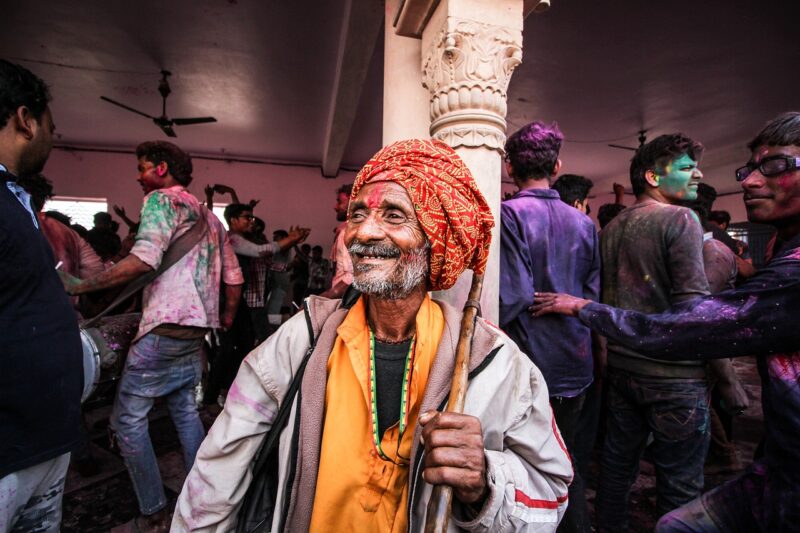The Most Astonishing Cultural Festivals in the World and How They Celebrate Humanity’s Diversity
November 17, 2024

Cultural festivals are more than just events; they are vivid celebrations of human expression, diversity, and tradition. Across the globe, these festivals unite people through music, dance, food, art, and history, showcasing the rich tapestry of humanity’s cultural heritage. In this article, we will explore some of the most astonishing cultural festivals in the world, delving into the significance of each and how they contribute to our collective identity.
1. Diwali – The Festival of Lights (India)
Diwali, celebrated primarily in India, symbolizes the triumph of light over darkness and knowledge over ignorance. This five-day festival usually falls in October or November and is marked by families lighting lamps, decorating their homes with colorful rangoli, and exchanging sweets.
During Diwali, temples and homes are illuminated with a myriad of lights, and fireworks light up the night sky. The festival commemorates the return of Lord Rama to Ayodhya after a 14-year exile, culminating in his victory over the demon king Ravana. Diwali serves as a reminder of hope, renewal, and community spirit, inviting participation from people regardless of their backgrounds.
2. The Carnival of Rio de Janeiro (Brazil)
Regarded as one of the largest and most famous carnivals in the world, the Carnival of Rio de Janeiro occurs annually before Lent and draws millions of participants and spectators. This festival is characterized by vibrant parades featuring samba schools showcasing dazzling costumes, energetic music, and intricate performances.
The roots of the carnival are steeped in African and Portuguese traditions, representing Brazil’s diverse cultural influences. From street parties to extravagant balls, the carnival reflects both joyous celebration and social commentary, addressing various issues like race and inequality. It’s a time when the boundaries of everyday life dissolve, and unity through music and dance takes center stage.
3. Oktoberfest (Germany)
Oktoberfest, held annually in Munich, Germany, is the world’s largest beer festival and a critical aspect of Bavarian culture. The festival runs for 16 to 18 days, starting in late September and ending in early October, attracting millions of visitors from around the world.
In addition to the massive tents filled with traditional Bavarian beer, Oktoberfest offers visitors a taste of regional cuisine, carnival rides, and cultural experiences. Attendees dress in traditional attire, such as lederhosen and dirndls, creating a festive atmosphere that celebrates the unique heritage of Bavaria. This festival not only promotes local customs but also fosters camaraderie among people of all nationalities, uniting them through food, drink, and laughter.
4. Holi – The Festival of Colors (India)
Holi, known as the Festival of Colors, is an exuberant celebration welcoming the arrival of spring in India. Participants throw colored powders and water at each other, creating a vibrant spectacle that symbolizes the joy of life and the victory of good over evil.
The festival is rooted in mythological tales, including the legend of Prahlad and Holika, representing devotion and the destruction of evil. Holi transcends societal barriers, bringing together people of all backgrounds to celebrate love, friendship, and community. It’s a time for forgiveness, renewal, and the spirit of inclusiveness, where past grievances are forgotten in a colorful whirlwind of happiness.
5. The Running of the Bulls (Spain)
This unique and exhilarating event takes place every July during the San Fermín festival in Pamplona, Spain. Traditionally, the running of the bulls involves participants sprinting in front of a group of bulls as they make their way through the streets towards the bullring. It symbolizes bravery, strength, and the adrenaline of the human spirit.
Although it raises ethical concerns about animal treatment, the event is rooted in deep cultural significance and attracts tourists from around the world seeking to participate in this thrilling activity. The festival is infused with traditional Spanish music, folk dancing, and delicious local cuisine, making it a true cultural extravaganza.
6. Chinese New Year – Spring Festival (China)
Chinese New Year, also known as the Spring Festival, is the most significant and widely celebrated festival in Chinese culture. Held in late January or early February, this festival marks the beginning of the lunar new year and is characterized by family reunions, festive meals, dragon and lion dances, and spectacular fireworks.
Traditionally, families clean their homes and decorate them with red lanterns and couplets to invite good fortune. Each year is associated with one of the twelve animals from the Chinese zodiac, contributing to its rich cultural tapestry. The festival enhances cultural identity, reinforcing familial connections and honoring ancestors, while embracing themes of renewal and hope for the year ahead.
7. Mardi Gras (USA)
Mardi Gras, held in New Orleans, Louisiana, is a vibrant celebration marked by parades, masked balls, and street festivities leading up to Lent. The festival is steeped in French Catholic traditions but has evolved into a unique expression of American culture, characterized by its lively music, colorful floats, and indulgent cuisine.
Participants don elaborate costumes and masks, embodying the spirit of revelry and community. The iconic beads and throws add to the flamboyant atmosphere, creating an environment where everyone can come together in merriment, irrespective of their backgrounds. Mardi Gras is a testament to the joyful celebration of life, diversity, and cultural expression.
Conclusion
Cultural festivals play a pivotal role in promoting diversity, fostering understanding, and strengthening community bonds. Each festival, with its unique history and traditions, tells a story that reflects the values and heritage of the people who celebrate it. By participating in these festivities, we not only honor our own cultures but also open doors to learn about and appreciate the myriad of ways humanity expresses itself. As we navigate a world that is increasingly interconnected, these festivals remind us of the importance of unity, love, and shared experiences in celebrating our rich cultural diversity.







